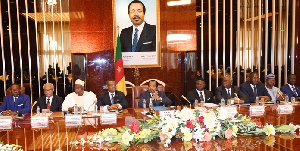The latest edition of the Big Brother Africa reality show was launched Sunday, October 5. Tagged Big Brother Hotshots, the show saw DStv subscribers across Africa watching a live screening of the unveiling of this year’s housemates and their stepping into the Big Brother House in Johannesburg, South Africa.
Described as “the biggest show on earth”, the Big Brother reality show has a global appeal with variants of this epic reality TV hosted in several countries. The African edition premiered in 2003 and has been an annual fixture on Nigeria’s entertainment calendar ever since.
Prior to the BBA Hotshots launch about two weeks ago, debates raged over alleged detrimental values the show imparts on Nigerians. While some believe that the Big Brother show has the potential to bring Africa together as an amalgamation of cultures, others make reference to the PG-rated aspect of its production which, they claim, tends to corrupt young minds.
Critics’ reviews of previous editions dwelt so much on the sexuality of the housemates and their access to alcohol, among other, factors, which threatened to take away the immense value that the Big Brother reality show brings to the table – a fusion of African cultures and a barometer to measure our response to one another across the continent as one big African family.
This notwithstanding, the show still boasts an increasing number of viewers and supporters that believe it should be served spontaneously and uncensored.
The supporters argue that Nigeria has got more problems to contend with than to bother herself with a mere entertainment programme on pay-TV, which is accessible to only a handful of Nigerians that can afford the ‘high’ subscription rate out of a population of about 150 million.
In fact, owners of the show, Multichoice, have reiterated that subscribers can restrict viewing through the Parental Control options available on their decoder. After nine editions of the reality series, supporters of the show seem to have gained foothold in the debate. Media reports have confirmed that the lessons to be derived from the show are many.
There has been an opportunity for cultural exchange; a quick reminder of the BBA1 Ugandan housemate, Gaetano Juko Kagwa, who was swapped with a Briton, Cameron Stout, from the Big Brother UK House. Gaetano spent four days in the UK, an experience which he relished deeply. In Season 3, Zimbabwean Munya Chidzonga swapped places with Finnish Johan Grahn, giving viewers an insight into the Finnish way of life while Munya went to Finland to showcase African culture.
The supporters of BBA also argue that Big Brother Africa is the only show on the continent that connects all African nations 24/7.
The Big Brother show has had a global impact, having been successfully syndicated in dozens of countries across the world. A Nigerian version dubbed Big Brother Nigeria (BBN) even held in 2006.
Analysts of reality television have critically observed that viewers watch reality shows because of its ability to provide satisfaction or pleasure felt at someone else’s misfortune or humiliation. They argue that viewers do not watch reality television for precious insight into the human condition but for those awkward scenes that make them feel better about their own unfilmed lives.
With only two weeks into this year’s edition of the show, viewers have begun to analyze how truly entertaining and reflective the show is and how truly it has been reflective of Africa’s mood towards one another. Whether as a people, our much-touted unity in diversity is a ruse or reality.
Through the housemates, we are reminded that Africa is not just about 14 countries, only that these 14 countries are the ones that have representatives in the show. Other African nations support with their comments and votes, thus affirming we are one big family.
Opinions of Tuesday, 18 November 2014
Auteur: Omonigho Elizabeth Arzika














